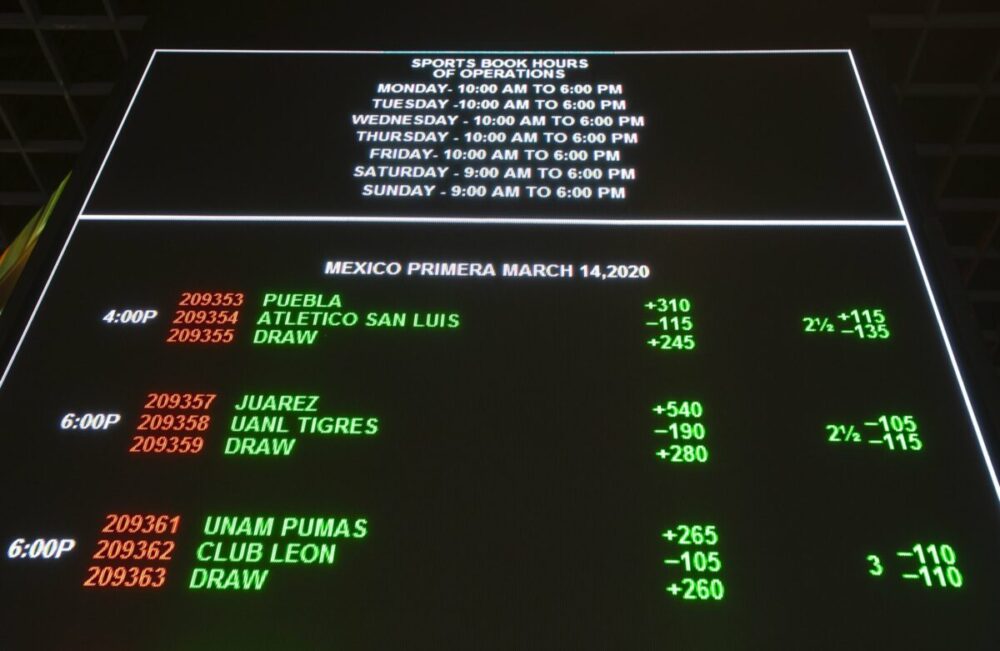
Sports betting, which involves predicting results and placing a wager on the outcome, has long been a popular pastime globally. This multifaceted industry extends from casual, small-scale wagers among friends to a sophisticated multi-billion-dollar market regulated by complex laws and regulations. On the other hand, tourism— the act of travel for recreation, leisure, or business— significantly contributes to many countries’ economies.
The intersection of sports betting and tourism presents a fascinating dynamic. Sports events often attract a significant influx of tourists, some of whom are attracted by the prospect of betting on the outcomes of these events. Sports betting can add a magnetic element to the tourist experience, whether it’s the energy of a packed sports stadium or the glamour of horse racing.
For instance, locales like Las Vegas and Macau are renowned for their sports betting facilities and broader appeal as tourist destinations. Events like the FIFA World Cup or the Super Bowl in the United States demonstrate how sports betting can draw in many tourists.
The Benefits of Sports Betting to Tourism

The potential synergy between sports betting and tourism must be noticed. Successful sports betting economies can drive significant tourist footfall, creating a vibrant economic cycle. Tourists who visit a destination for its sports betting opportunities also contribute to the local economy by staying in hotels, dining at restaurants, and purchasing goods or services.
Take Las Vegas, for instance. This city has effectively combined sports betting with tourism, creating a powerhouse economy that draws millions of visitors annually. Tourists are attracted not only by sports betting but also by the spectacle and entertainment accompanying these activities.
Challenges of Using Sports Betting to Drive Tourism
Regions like Las Vegas and Macau have mastered the art of integrating sports betting into their tourism strategies, creating a thriving economy that caters to sports enthusiasts. However, using sports betting to boost tourism presents several challenges, from legal and societal issues to concerns related to sports integrity, problem gambling, and environmental impact.
Legal Issues and Restrictions on Sports Betting
The legal restrictions on sports betting vary widely from country to country and even within different regions in the same country, making it difficult for operators to maintain a consistent global presence. For instance, in the United States, the Professional and Amateur Sports Protection Act (PASPA) prohibited sports betting until 2018, when the Supreme Court overturned it. As such, navigating these legal intricacies can be a major obstacle for destinations hoping to boost tourism through sports betting.
To address the legal complexities involved, numerous betting operators employ betting promotions to engage fans. Such promotions can be found here at rotowire.com. Online platforms offer bonuses and promotional offers that enhance the betting experience for both new and experienced bettors. However, these promotions introduce another level of intricacy within the legal landscape, as they are subject to their own set of regulations. It is crucial to understand and navigate these promotional regulations in conjunction with sports betting laws to ensure a captivating and lawful platform, despite the challenges. You can find more information on this topic by visiting this relevant resource.
Impact on Local Communities and the Environment

The integration of tourism with sports betting invariably shapes the local communities and environment in various ways. As with any tourism, an influx of visitors can lead to over-tourism, straining infrastructure, increasing waste, and altering local cultures. However, when sports betting becomes a defining feature of a destination, it brings unique dynamics to the local community’s image and environment, yielding both positive and negative effects.
With its famed city of Las Vegas, Nevada is a successful example of a state that has navigated the challenges and reaped the benefits of sports betting tourism. Known as the world’s gaming capital, Las Vegas attracts millions of visitors annually. Its sports betting industry has been a key factor in shaping the local community and the city’s image.
Sports betting tourism has significantly contributed to Nevada’s economy. It has generated substantial revenue and created numerous job opportunities, boosting the local economy and providing income for thousands of residents. However, this influx of tourists has increased waste generation and strained the city’s infrastructure. The state authorities have been working to mitigate these challenges by investing in infrastructure, enforcing waste management programs, and instituting measures to address problem gambling.
The impact of sports betting on local communities and the environment is a complex issue. While it brings economic benefits and can help to create a unique image for a destination, it also poses challenges that require proactive management.
The Role of Technology and Related Challenges
Technology’s increasing prominence in sports betting is a double-edged sword. On the one hand, it has significantly revolutionized the industry, introducing new features like live betting and virtual reality experiences. Easy access to online platforms and mobile applications has brought about convenience, making sports betting readily available to a global audience.
On the other hand, this digitization presents a unique set of challenges. Cybersecurity becomes a pressing concern as betting platforms handle vast amounts of personal and financial data, necessitating stringent safeguards against potential cyber threats. Issues of fair play and transparency rise to the fore in the digital landscape, demanding robust regulatory oversight to prevent fraudulent activities.
Furthermore, data protection is a significant hurdle. Secure storage, responsible usage, and consent-based sharing of user data become paramount to maintaining trust and regulatory compliance. The ease and accessibility of digital betting platforms could fuel problem gambling, underscoring the need for measures to encourage responsible use, such as betting limits and time restrictions on platforms.

Final Thoughts
The future of sports betting in tourism presents a fascinating trajectory marked by opportunity and complexity. Regions interested in capitalizing on this trend can learn from the successes and challenges of Las Vegas and Macau. They’ve shown how to navigate the legal landscape, manage community impact, and harness technology, offering a roadmap for other states and countries.
Yet, the future demands innovative solutions, from green infrastructure investments and robust waste management systems to responsible betting practices and stringent online security measures. We can foresee a sustainable and prosperous future for sports betting tourism by prioritizing these initiatives. This future will require collaborative efforts, social responsibility, and a commitment to meeting challenges head-on.








